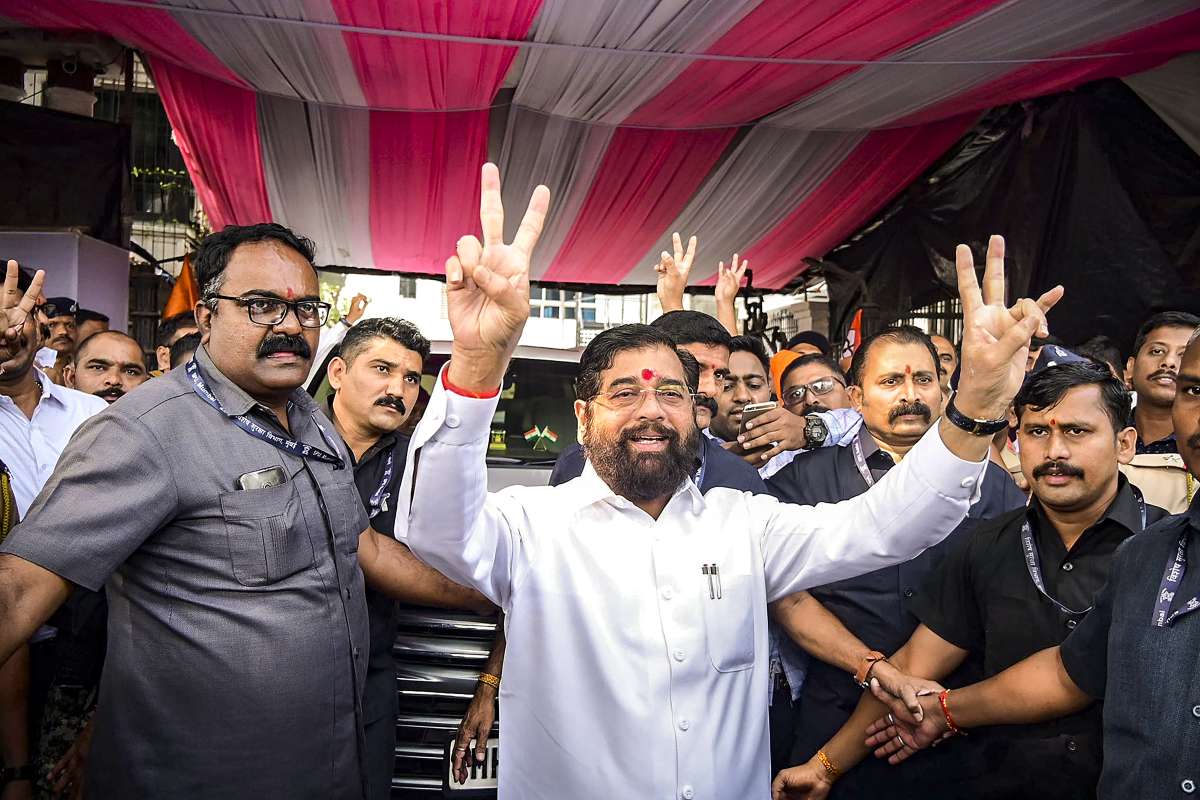 |
|
The political landscape of Maharashtra remains in a state of flux, with the formation of a new government experiencing significant delays. At the heart of the impasse lies the assertive demand by Eknath Shinde, the Shiv Sena chief, for the crucial Home Ministry portfolio. This demand, coupled with disagreements among the ruling coalition partners – the BJP, Shiv Sena, and NCP – has created a considerable hurdle in the smooth transition of power. Shinde's insistence on securing the Home Ministry underscores the complex power dynamics at play and the potential for internal friction within the ruling alliance. The allocation of this pivotal ministry is not merely a matter of administrative responsibility; it carries substantial political weight, offering considerable influence and control over law enforcement and internal security.
The recent meeting between Shinde, Devendra Fadnavis, Ajit Pawar, and Union Home Minister Amit Shah in Delhi aimed to resolve these differences, but it yielded little immediate progress. Following the meeting, Fadnavis, who currently holds the Home portfolio, returned to Mumbai before leaving for his village in Satara, leaving behind a trail of uncertainty regarding the government's formation. The silence from the key players only amplifies the existing tension and underscores the critical nature of the ongoing negotiations. This protracted stalemate casts a shadow of doubt over the stability and effectiveness of the incoming government, raising concerns about the potential for delayed policy implementation and a weakened governance structure.
Sanjay Shirsat, a Shiv Sena leader, has publicly voiced the party's stance, emphasizing the need for the Shiv Sena to secure the Home Ministry. His statements highlight the growing rift between the coalition partners and indicate a possible struggle for dominance within the new government. Shirsat's assertion that Shinde's positive image and implemented schemes warrant the Home Ministry further emphasizes the political significance of portfolio allocation. By linking Shinde's popular image to the demand for the Home Ministry, Shirsat aims to strengthen the party's bargaining position and portray Shinde as a key figure who played a crucial role in the recent state poll victories. The success of the 'Mukhyamantri Majhi Ladki Bahin' scheme, despite opposition from Ajit Pawar, is cited as evidence of Shinde's effective governance and popular appeal. The reference to the scheme serves as a calculated political maneuver aimed at enhancing Shinde's perceived credibility and reinforcing the party's justification for securing the Home Ministry.
The current situation underscores the challenges of coalition governance in India. The necessity of securing the support of multiple parties often leads to compromises and negotiations that can prolong the process of forming a government. The ongoing power struggle within the Maharashtra coalition raises questions about the stability of the new government, the potential for future conflicts, and the overall effectiveness of the ruling alliance. The delay in forming a stable government could potentially hamper the state's ability to address pressing issues and implement crucial policies. Furthermore, the public perception of the coalition government might be impacted by this protracted negotiation process.
The allocation of ministerial portfolios is often a contentious issue in coalition governments, with each party seeking to secure positions that align with their political goals and influence. In the case of Maharashtra, the Home Ministry is particularly significant, given its control over law enforcement and internal security. The fact that this portfolio is at the center of the current dispute indicates the significant political stakes involved. The outcome of this power struggle will not only determine the composition of the new government but will also significantly impact the political landscape of Maharashtra in the coming years. The continued uncertainty surrounding the government formation process highlights the fragility of political alliances and the inherent complexities of coalition politics in the state.
Source: Is Eknath Shinde adamant on Home Ministry? Maharashtra govt formation delayed amid CM suspense
